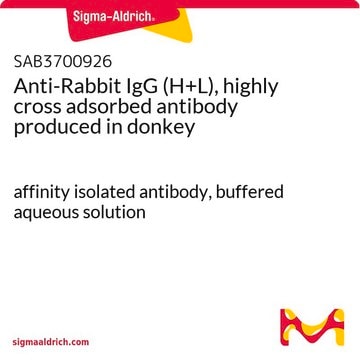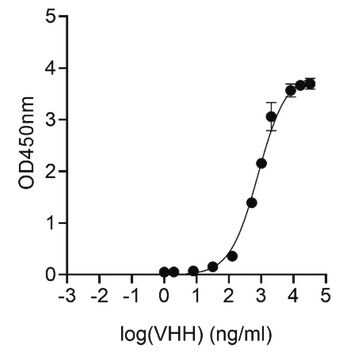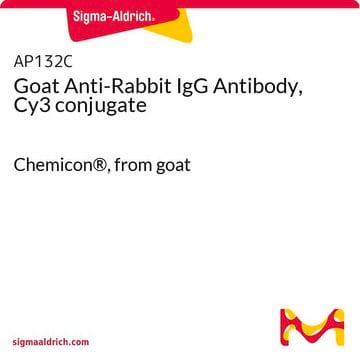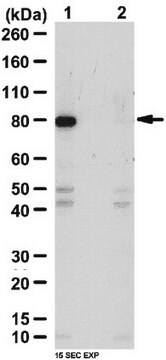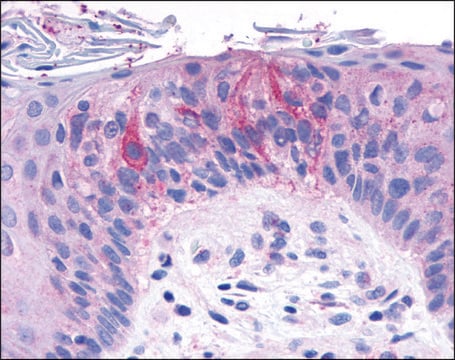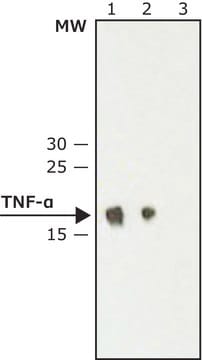MABC615
Anti-TNFα Receptor Antibody, clone 13F9.1
clone 13F9.1, from mouse
Sinónimos:
Tumor necrosis factor receptor superfamily member 1A, Tumor necrosis factor receptor 1, TNF-R1, Tumor necrosis factor receptor type I, TNF-RI, TNFR-I, p55, p60, CD120a, Tumor necrosis factor receptor superfamily member 1A, membrane form, Tumor necrosis f
About This Item
Productos recomendados
origen biológico
mouse
Nivel de calidad
forma del anticuerpo
purified antibody
tipo de anticuerpo
primary antibodies
clon
13F9.1, monoclonal
reactividad de especies
mouse, human
técnicas
immunohistochemistry: suitable
western blot: suitable
isotipo
IgG1κ
Nº de acceso NCBI
Nº de acceso UniProt
Condiciones de envío
wet ice
modificación del objetivo postraduccional
unmodified
Información sobre el gen
human ... TNF(7124)
Descripción general
Especificidad
Inmunógeno
Aplicación
Immunohistochemistry Analysis: A 1:1,000 dilution from a representative lot detected TNFα Receptor in human colon tissue and human colon cancer cells.
Calidad
Western Blotting Analysis: 1.0 µg/mL of this antibody detected TNFα Receptor in 10 µg of Jurkat cell lysate.
Descripción de destino
Forma física
Otras notas
Not finding the right product?
Try our Herramienta de selección de productos.
Código de clase de almacenamiento
12 - Non Combustible Liquids
Clase de riesgo para el agua (WGK)
WGK 1
Punto de inflamabilidad (°F)
Not applicable
Punto de inflamabilidad (°C)
Not applicable
Certificados de análisis (COA)
Busque Certificados de análisis (COA) introduciendo el número de lote del producto. Los números de lote se encuentran en la etiqueta del producto después de las palabras «Lot» o «Batch»
¿Ya tiene este producto?
Encuentre la documentación para los productos que ha comprado recientemente en la Biblioteca de documentos.
Nuestro equipo de científicos tiene experiencia en todas las áreas de investigación: Ciencias de la vida, Ciencia de los materiales, Síntesis química, Cromatografía, Analítica y muchas otras.
Póngase en contacto con el Servicio técnico